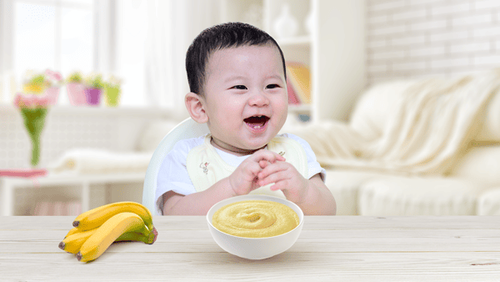This is an automatically translated article.
Thumb sucking behavior is one of the habits that babies often have, experts say that this behavior of children is a simulation of the process of suckling from the mother's breast. However, many mothers are worried when they see their baby sucking and refusing to suckle, many parents are very worried, in addition, the child's thumb sucking behavior looks very unhygienic. So does the thumb sucking behavior have any effect and how to treat the child's thumb sucking habit?1. Why do some children suck their thumbs?
Newborns have a natural sucking reflex, which can cause them to put their thumbs in their mouths, a behavior that can happen even while the baby is still in the womb. Thumb sucking makes children feel secure, and some children develop a habit of sucking when being patted or about to go to sleep.Thumb sucking is a common habit in children. This behavior shows that the child is in need of help to find peace when facing the most anxiety and stress, often when the mother is not around. Thumb sucking helps bring a feeling of closeness and warmth to the baby as if being wrapped in a mother's loving arms. According to experts, thumb sucking is considered one of the interesting games of children in the first years of life, and helps bring a refreshment for children to grow up day by day.
According to the American Association of Pediatrics (AAP), most babies suck their thumbs when hungry. At this stage, thumb sucking is one of the signs that the baby is hungry and needs milk. This helps the baby feel more comfortable and stimulated like finding the feeling of breastfeeding again. Even in the womb, the baby has formed this habit, gradually this reflex occurs even when the baby is not hungry, even when the baby is grown and stops nursing.
At 1-2 years of age, children will stop sucking, but about 15% of children will continue to suck their thumbs until 4 years of age. In addition, some children also like to suck their thumbs at night or when under emotional stress despite being an adult. Because when you are tired, bored or need to relax, sucking helps children feel more comfortable.
The baby's brain will produce endorphins (endogenous pain relievers) when the child sucks the thumb, helping the child's body relax and give the child a feeling of enjoyment, similar to when the child is enjoying the food. foods that children love. According to the natural progression, the child's thumb sucking reflex will gradually decrease after the first 6 months, of which, 70-90% of children have a habit of thumb sucking, however, when they are 3-5 years old, most children have a habit of sucking their thumb. Children will automatically quit sucking.

Theo diễn tiến tự nhiên, phản xạ mút tay của trẻ sẽ giảm dần sau 6 tháng đầu tiên
2. How long does thumb sucking behavior usually last?
Many children stop sucking their thumb on their own, usually between the ages of 6-7 months or between the ages of 2 and 4.However, even if children have stopped sucking their thumbs for a long time, they can still repeat this behavior when feeling excessive stress.

Nhiều trẻ tự ngừng mút ngón tay cái, thường ở độ tuổi 6 - 7 tháng hoặc từ 2 đến 4 tuổi
3. When should the child's thumb sucking behavior be intervened?
The thumb sucking reflex isn't usually a cause for concern until the baby's permanent teeth come in. At this point, thumb sucking can begin to affect the roof of the mouth or the way the teeth come in. The risk of dental problems is related to how often, when, and how often your child sucks his or her thumb.Although some experts recommend addressing thumb sucking before the child is 3 years old, the American Academy of Pediatrics says treatment is usually limited to children who continue to suck their thumbs after they have been exposed. 5 years old.
4. What can I do to help my child stop sucking his thumb?
Once your child understands, talk to them about thumb sucking. Children's chances of succeeding in stopping the habit will be higher if they want to stop and are given the right option.In some cases, not paying attention to the child's thumb sucking is also an effective way to stop the child's behavior, especially if the child uses thumb sucking to attract attention. idea.
Parents shouldn't be too concerned when their child sucks their thumb, the American Dental Association says most children can suck their thumb without damaging the alignment of their teeth or jaws - until permanent teeth far begins to papillae.
Also, not all thumb sucking is equally harmful. Experts say it is the intensity and thrust of the tongue that deforms the teeth and makes braces later necessary. Children who leave their thumbs passively in their mouths are less likely to have dental problems than children who suck vigorously.
If you observe your baby sucking vigorously, you may want to start curbing the habit earlier, such as around age 4. If you notice any changes in your child's mouth or teeth, or if you Not sure if thumb sucking is causing problems, consult your dentist.
If your baby's thumb is red and cracked from suckling, try applying moisturizer while the baby is sleeping.
Most children stop sucking their own thumb between the ages of 2 and 4. Some continue the habit longer, but peer pressure at school is often a very effective deterrent to this behavior.

Nếu ngón tay cái của trẻ bị đỏ và nứt nẻ do bú, hãy thử thoa kem dưỡng ẩm khi trẻ đang ngủ
Don't put pressure on your child: Punishing or yelling at your child will not work because children often I don't realize when I'm nursing. Besides, forcing a child to stop can make him want to do it even more. And methods like wrapping a rubber band around a child's thumb are inappropriate punishments, especially since children form this habit for comfort and safety. Praise your child for not sucking: Praise your child or encourage her with small rewards when she doesn't suck her thumb. Set a goal for your child, such as not sucking his thumb an hour before bedtime. Identify the cause of your child's thumb sucking: If your child sucks his thumb when he's stressed, you need to identify the cause and comfort him in other ways, such as hugging or giving reassurances. young safety. Offer gentle reminders: If your child sucks his thumb without thinking (not a way to get attention), gently remind him to stop. Don't worry, criticize or ridicule your child. Suggest other activities: If you can determine when and where your child is most likely to suck their thumb - like while watching TV, consider distracting your child with an alternative activity, such as tossing a ball or playing with a toy. If you're concerned about the effects of thumb sucking on your child's teeth, see your dentist. For some children, talking to the dentist is more effective than parenting.
In rare cases, your doctor may recommend techniques, such as putting on socks.
For some children, thumb sucking is an extremely difficult habit to break. Try to stay calm, putting too much pressure on your child to stop sucking their thumb can only slow down the process.
Please dial HOTLINE for more information or register for an appointment HERE. Download MyVinmec app to make appointments faster and to manage your bookings easily.
Reference sources: babycenter.com, mayoclinic.org









